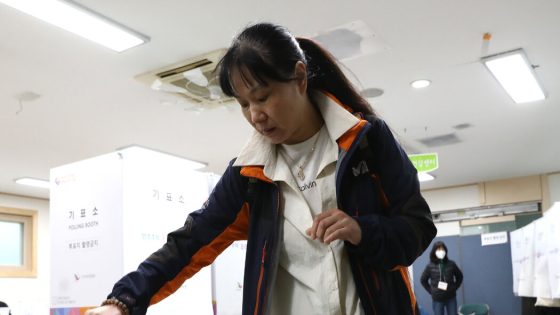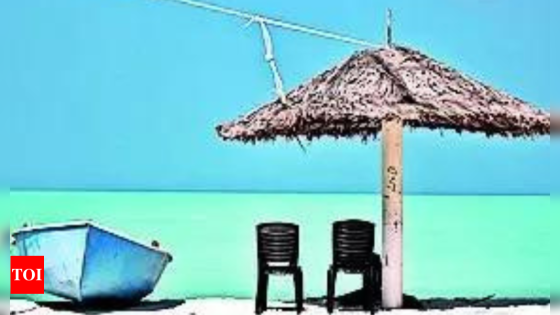South Korea’s polarized election
South Koreans are heading to the polls today to select a new Parliament after a particularly fraught campaign. The general election, the first since President Yoon Suk-yeol won the presidency in 2022, is seen as a midterm referendum on his leadership.
Voting was getting underway across the country, just as we sent this newsletter.
Many parties are vying for 300 seats in the Parliament. But the election is largely a contest between Yoon’s conservative People Power Party and the main opposition group, the liberal Democratic Party, led by Lee Jae-myung. It has become a bitter contest between the two archrivals, who are locked in what is known as “gladiator politics.”
Both sides, analysts say, have focused on demonizing the other instead of offering policy proposals, and that acrimony has filtered down to voters. Many analysts expect the coming election to amplify polarization in the country.
Here’s a full explanation of the stakes of the vote.
Analysis: “This election is about who you want to punish, Yoon Suk Yeol or Lee Jae-myung,” said Eom Kyeong-young, an election analyst at the Zeitgeist Institute in Seoul.
A major European climate ruling
Europe’s top human rights court said that the Swiss government had violated its citizens’ human rights by not doing enough to stop climate change. It was the first time an international court determined that governments were legally obligated to meet their climate targets under human rights law.
“This is a landmark ruling, and it could trigger a wave of similar lawsuits in European countries,” David Gelles, the managing correspondent of our Climate Forward newsletter, told us.
Around the world: Climate litigation has been growing, with governments suing fossil fuel companies over the damage caused by extreme weather and people suing governments for not doing enough to stop climate change. Last month, India’s Supreme Court concluded that people had a right to be shielded from the effects of climate change under the constitution.
“The European ruling isn’t likely to affect rulings in the U.S.,” David said. “But there are several big cases making their way through the U.S. court system, including one that could appear before the Supreme Court later this year.”
Other environmental news:
Iran smuggles arms into the West Bank, officials say
Iran is using a network of intelligence operatives, militants and criminal gangs to deliver weapons to Palestinians in the Israeli-occupied West Bank, according to officials from the U.S., Israel and Iran. The goal, as described by Iranian officials, is to feed unrest against Israel by flooding the enclave with arms.
The operation is heightening concerns that Tehran wants to turn the West Bank into the next flashpoint in the yearslong shadow war between Israel and Iran. Iran has also vowed to retaliate for an Israeli strike on an embassy compound in Syria earlier this month that killed seven Iranian military officials.
Some of the most prominent creative people over the age of 75 spoke to The Times about their careers and their professional motivations. “Sometimes in the morning when I wake up, it’s hard to get out of bed,” said the artist Betye Saar, above. But, she added, “I do it. Not everyone has a reason to get out of bed, something they love to do and that gives their life meaning. I am so lucky that I have that.”
Lives lived: Peter Higgs won the Nobel Prize for discovering the Higgs boson, or “God particle,” which helps explain how other particles acquire mass. He died at 94.
CONVERSATION STARTERS
The International Booker Prize shortlist
Heartbreak, family love and approaches to coping with poverty are all among the topics tackled by this year’s six International Booker Prize nominees. The prestigious award is for to fiction translated into English.
Among the nominated titles is Hwang Sok-yong’s “Mater 2-10,” translated by Sora Kim-Russell and Youngjae Josephine Bae. The political novel traces North and South Korean history through a family of railway workers and provides a rarely heard “worker’s-eye view of the 20th-century history surrounding Korea’s partition,” The Guardian wrote in a review.
See the full list of nominees here.
RECOMMENDATIONS
Source Agencies



